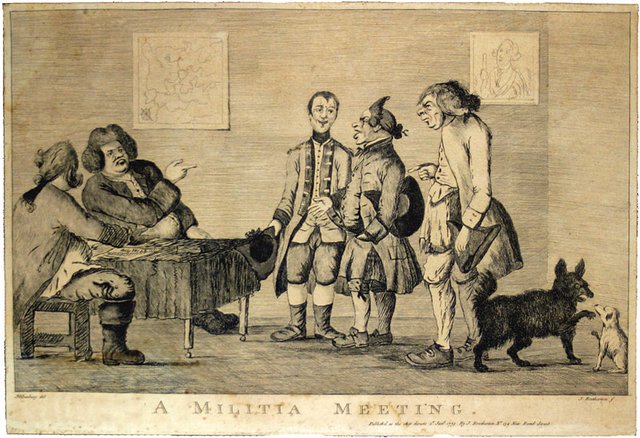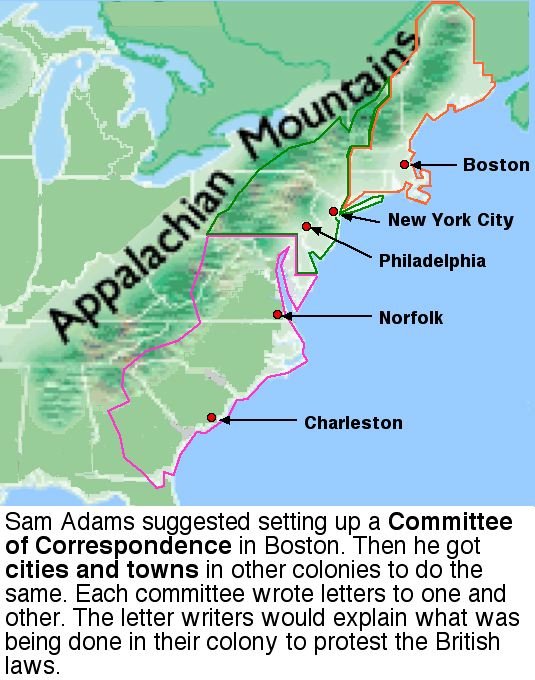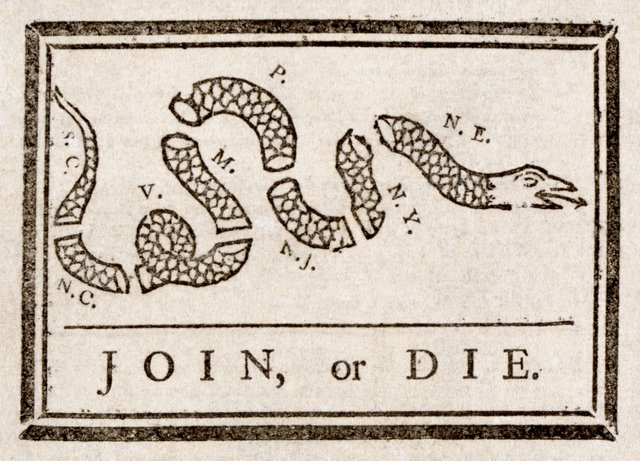How to be an InformationWar Activist - Part Ten: Committees of Correspondence, The first American Information War?
I remember reading April Morning, a young adult novel about the revolutionary War, and being intrigued by the idea that so much of the American Revolution had been organized in advance through the Committees of Correspondence and/or Security and/or Inspection. I'm going to lump all these various designations under the common reference of Committees of Correspondence for blogging purposes. This organization had been done in a worst case scenario; although the Radicals like Sam Adams were indeed pushing for full Independence. Sam and his compatriots formed the first such Committee in Boston.
Quick and dirty regression; April Morning is one of the most patriotic book I have ever read, and it was written by Howard Fast, a Communist. Worth a post on it's own at another time!
What is the relationship between Information War and the Committees of Correspondence?
Remember the point of Information War, from Part Four, What the heck IS Information War?:
Information War is simply war by a method other than open force, the control of information that people use to make political decisions.
Some of you Millennials might not recognize there was no Internet back then (SNARK ;>), so information distribution was limited by the means that people could communicate with each other. At this time in history, it was in-person speech, or written communication in the form of pamphlets or letters.
What was the history in the formation of Committees of Correspondence
The printing press, a fairly new technology at the time, spread the reach of written communication:
The peak of pamphlet writing was probably reached in the last half of the eighteenth century during the American and French Revolutions.
Pamphlets and Public Opinion During the American Revolution
...and...
Thomas Paine and other agitators felt the necessity of using print culture to impel that mass to defy an empire.
Propaganda, Prenational Critique, and Early American Literature
It was though articles in the local "papers" in which Sam Adams made his first arguments for united resistance to tyranny. However, concept of the Committee was an English tradition:
Committees of correspondence were public functionaries of a type first appearing in England, created by the parliamentary party of the 17th century in their struggles with the Stuarts
Wiki
Even so, The American use of this organizational technique was unprecedented in it's eventual results and levels of participation:
The events leading up to the Revolution would reveal for the first time the potential of voluntary associations as
political instrumentalities.
VOLUNTARY ASSOCIATIONS AND THE AMERICAN REVOLUTION
Even before the Stamp and Tax Acts had lit the powder keg of rebellion, British policy had created a fertile ground for the formation of such Committees:
Great Britain’s policy of salutary neglect enabled selfgovernment to prevail throughout the American colonies. Domestic affairs were largely left to provincial legislatures, and laws imposed by Parliament were often evaded
American Colonial Committees of Correspondence:Encountering Oppression, Exploring Unity, and Exchanging Visions of the Future
We'll move on to how the Committees functioned shortly, but keep in mind that the formation of local Committees continued through the war, and was called for by patriot leaders as a necessity in this war:
On October 20, 1774, the First Continental Congress published the Articles of Association...The Articles called for the formation of “a committee...in every county, city, and town, by those who are qualified to vote for representatives in the legislature.... [who areresponsible for monitoring] foes to the rights of British-America [so that any violations] may be
publicly known, and [be] universally condemned as the enemies of American liberty.
"An Exceedingly Dirty and Nasty People”:Exploring the Patriot Forces of 1775
Functions
The first tasks of the Committees was Correspondence...in other words, communications:
The Committees of Correspondence, set up early in 1773 to assure regular communication between the
leaders of the colonial legislatures
VOLUNTARY ASSOCIATIONS AND THE AMERICAN REVOLUTION
The Committees themselves were formed by:
grassroots participation in both large and small communities within the province of the Massachusetts -Bay . These towns and districts, Boston in particular, then corresponded with other towns throughout the American colonies, as well as with Great Britain and Canada with the objective of presenting their views and opinions of the transgressions of the British
Parliament in the years prior to the Revolution. This extensive communication network provided the unity of thought and purpose that guided the American colonies through their war
The committees of correspondence, inspection and safety in old Hampshire County, Massachusetts, during the American Revolution
Highlights mine
The "unity of thought" came from the common distribution of pamphlets:
Any number of examples, such as John Dickinson's Letters from a Farmer, Thomas Paine's Common Sense, and
Samuel Johnson's Taxation no Tyranny, familiar to everyone, might be cited
Pamphlets and Public Opinion During the American Revolution
Using letters to reinforce the "unity of thought", Committees
made this historic plea to their colonial brethren. They addressed the pamphlet to the other towns of Massachusetts and called upon each for “a free communication of your sentiments” on the current political emergency
American Colonial Committees of Correspondence:Encountering Oppression, Exploring Unity, and Exchanging Visions of the Future
Conclusion
"Perhaps no single step contributed so much to cement the union of the colonies, and the final acquisition of independence, as the establishment of committees of correspondence, " proclaimed Mercy Otis Warren in her History of the Rise, Progress and Termination of the American Revolution (1970)
T. H. Breen, in American Insurgents, American Patriots: The Revolution of the People, seconds Warren's thought with these observations:
proliferation of local committees represented a development of paramount importance in the achievement of independence
a formal structure capable not only of policing the revolution on the ground but also of solidifying ties with other
a shared sense of purpose
an imagined collectivity—a country of the mind
We can see the tension in the need for grassroots (decentralized) participation and the need for a formal structure to communicate the ideas of the local communities to each other. The Committees filled both needs by:
- Taking advantage of the new technology, the printing press
- Establishing a communication network
- Use of this network to communicate the urgency of the issue, and a unified need to act
...thus controlling the flow of information, and winning the FIRST American Information War!
References and related material
Committees of correspondence - Wiki
The Propaganda of Samuel Adams and its Influence on the Outbreak of the American Revolutionary War
This series index:
So you want to be an InformationWar Activist? - Part One (UPDATED)
How to be an InformationWar Activist - Part Two, Morality (UPDATED)
How to be an InformationWar Activist, Part Three: Is the Information War Winnable?(UPDATED)
How to be an InformationWar Activist - Part Four: What the heck IS Information War? (UPDATED)
How to be an InformationWar Activist - Part Five: The American Deep State (RESTEEMED)
How to be an InformationWar Activist - Part Six: The Personal Price
How to be an InformationWar Activist - Part Seven: Who Might The Players be?
How to be an InformationWar Activist - Part Eight: Making Sense of Multiple Levels of Corruption
How to be an InformationWar Activist, Part Nine: The Power of Decentralization As A Tool
How to be an InformationWar Activist - Part Ten: Committees of Correspondence, The first American Information War?
Steemit writers contributing to understanding the Information War
@dragon40
@lifeworship
@shayne
@phibetaiota - Information War, OSINT
@fortified
@krnel - Critical Thinking/Cognitive Bias
@richq11
@dwinblood - Critical Thinking
@rebelskum - http://pizzagate.wiki
@aggroed
@ausbitbank
@titusfrost
@canadian-coconut



Love this type of informative posting @stevescoins I will have to check out April Morning. I wouldn't trade the colonial days for anything.....just look where the Internet / technology got us . . .perhaps one day it will all come full circle in a decentralized, decent humanitarian format
I think that's where we are eventually headed, @lanceman
Oversimplify and there are three kinds of people, the ones who want to be led, the ones who want to lead (for good, and for bad), and those who want to be left alone.
Once self-sustaining systems have been put in place (renewable energy on a personal scale, agroponics, etc), those who want to be led might find they dont need leadership as much as security; those goodleaders will recognize that; those bad leaders will be dealt with in one way or another,
Posted from chainBB
Great post👌 upvoted😃. Check out my page of you like🙂
How to comment on a post past "Great Post!"